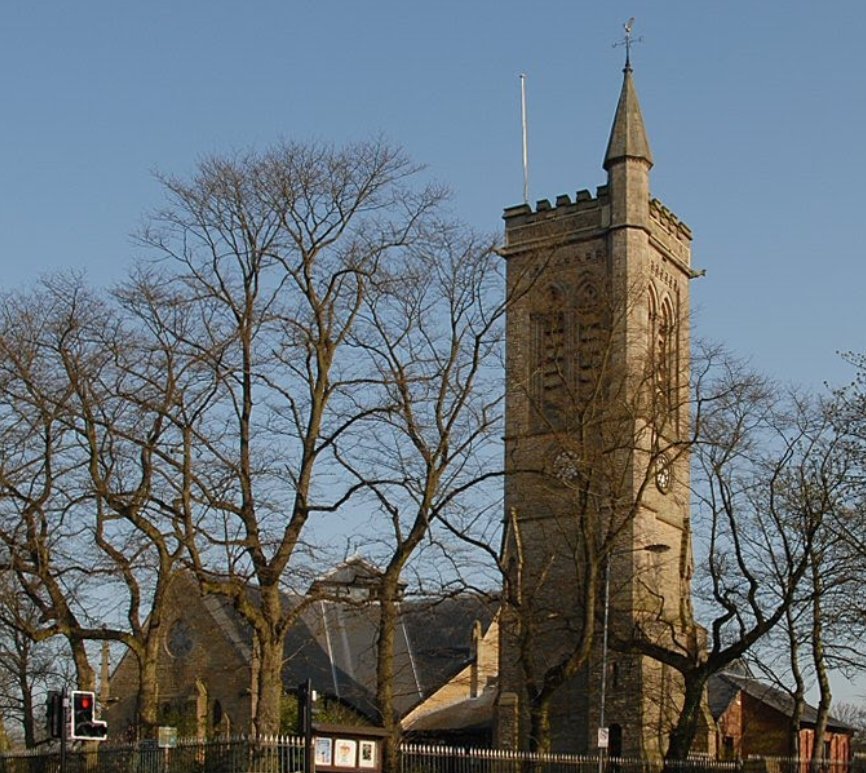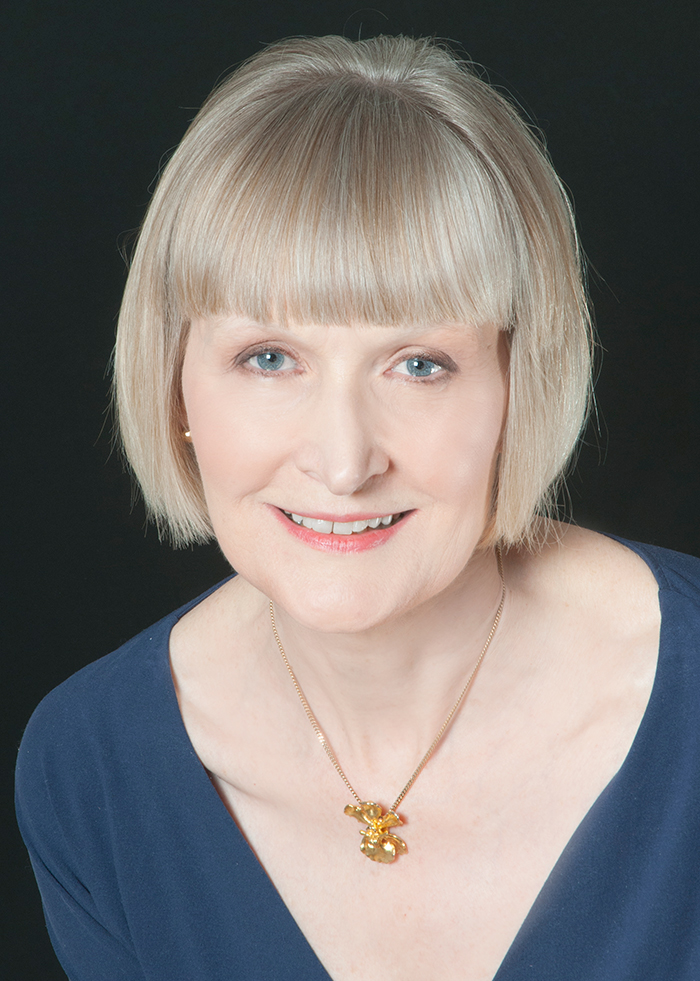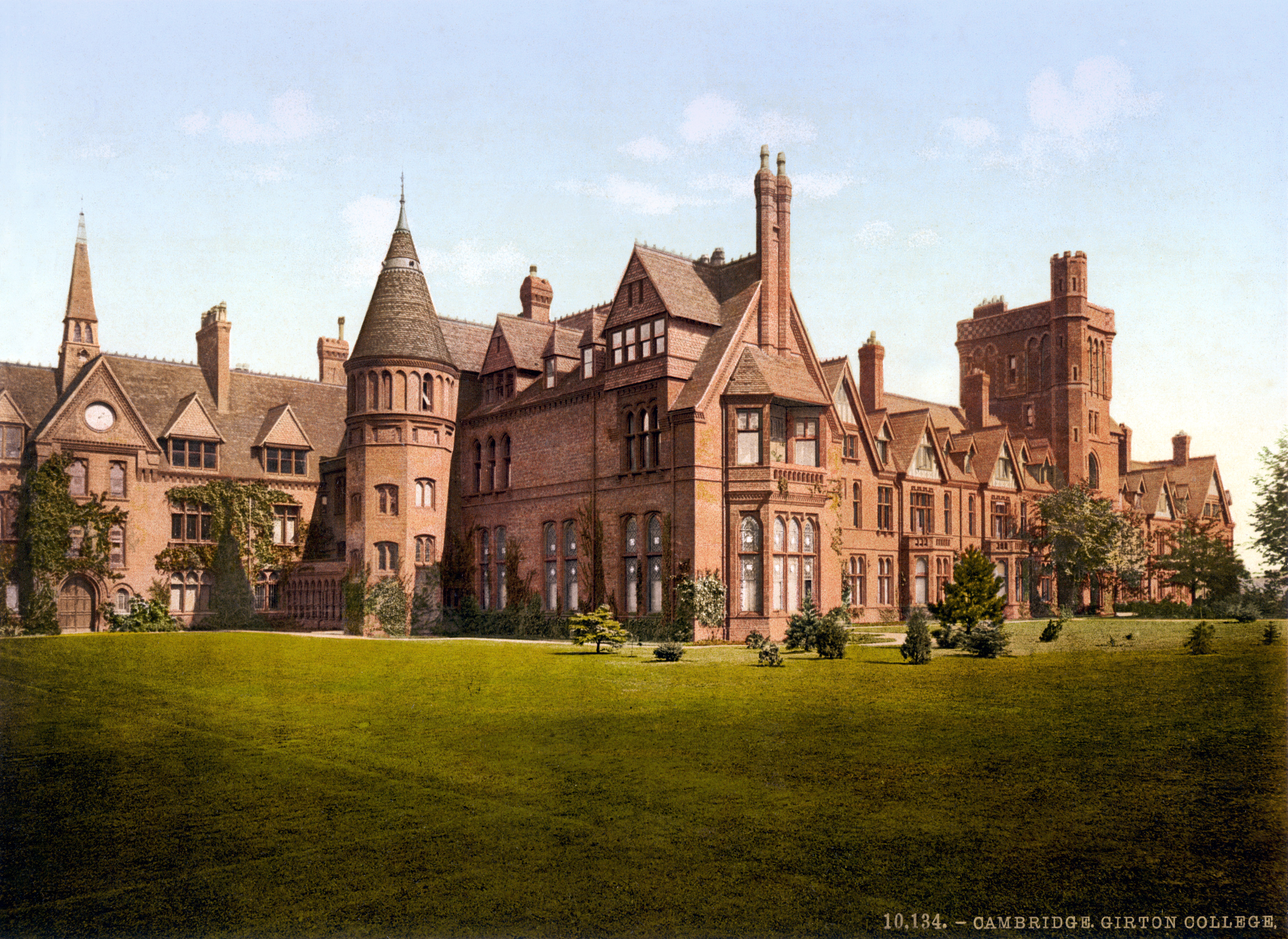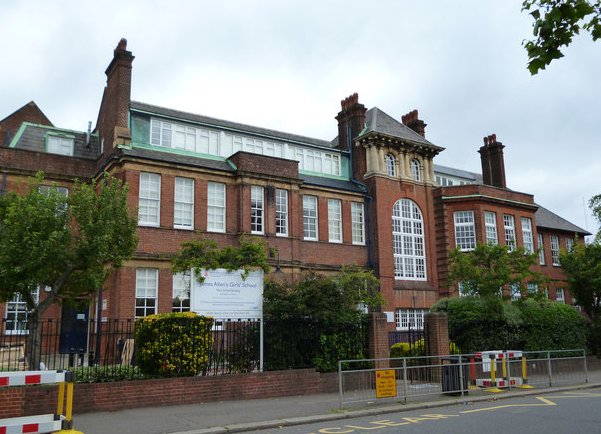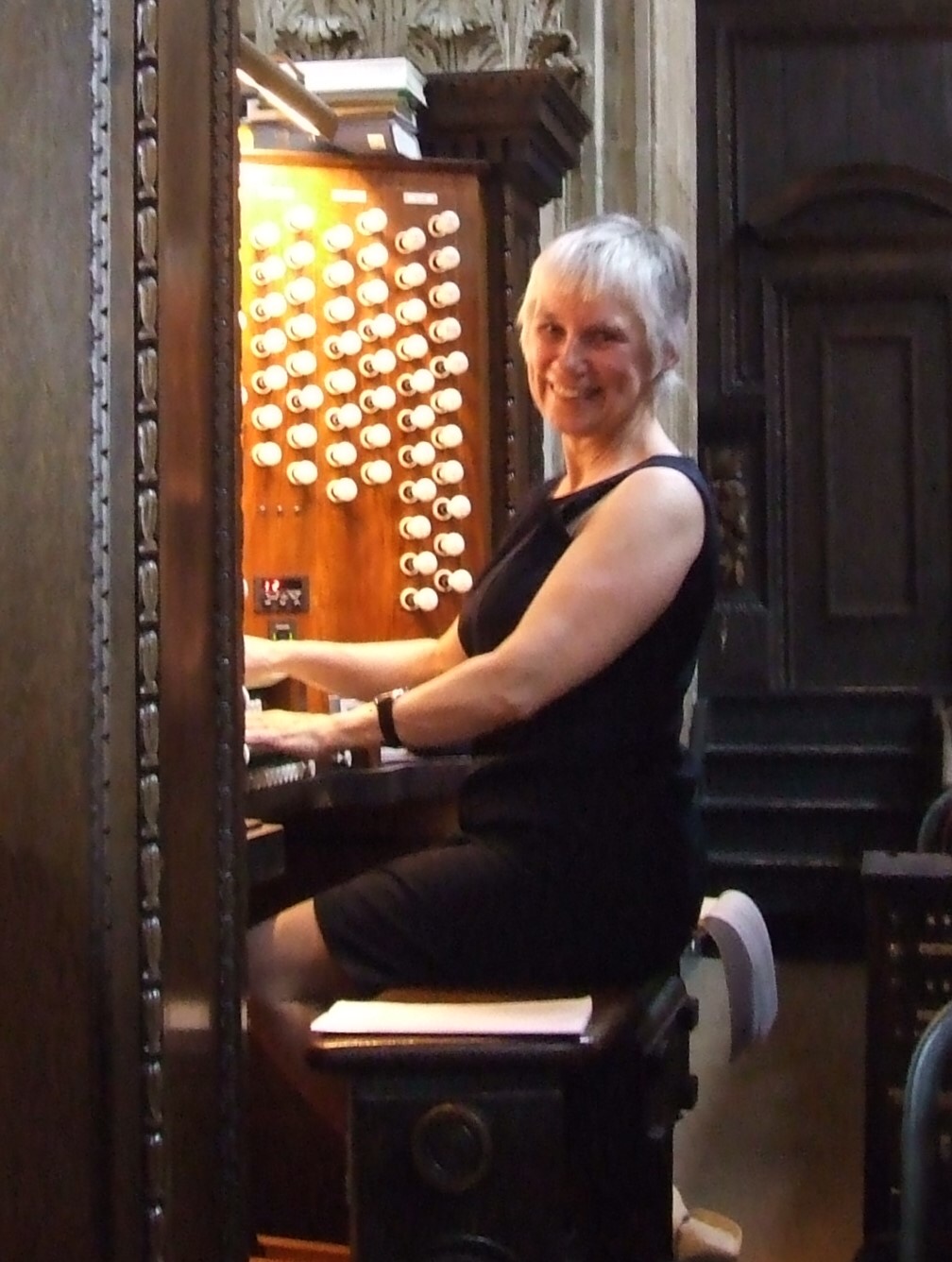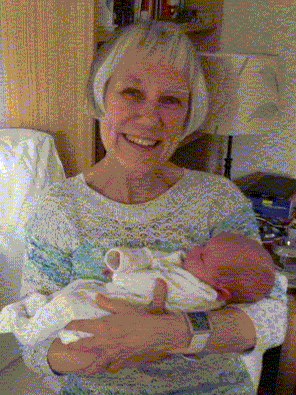 Where are the women organists?
Where are the women organists?
Thank you for your kind invitation to speak this evening. I am amazed, humbled and puzzled. Why me when there are other far more distinguished women teachers and players? I was even more humbled and puzzled when after this invitation came another one came from the RCO asking for thoughts on another aspect of this subject. You see a summary of thoughts by me and others in the latest edition of RCO News, but you won’t know which views and observations are mine.
Well what is it like? I have enjoyed, and continue to enjoy being an organist. In my present post in Dulwich, I am their first woman organist in 400 years. The fact of being a woman organist is immaterial to me, although I was excited by the idea of being a woman in a man’s world when much younger. I didn’t set out to be a threat, I just enjoyed what I was doing. I have never sought high musical office, nor sought to give recitals in posh places. However, my attempts to make a cd of music on the chapel organ have been frustrated. Enquiries about my 2010 tapes remain unanswered. Norman had to chase other editors to get his recordings ready for sale. This small example shows that for both amateur and professional women and men organists some things are reasonably equal. What has been different up until present days, are opportunity and acceptance for women organists and singers in the higher echelons of the church in this country. This is now changing and questions about jobs, opportunities should ideally relate to the ability of a player, rather than to their gender.
However, anxious to make sure that women organists are fully acknowledged and supported, Philip Meaden, CEO of the RCO, has put the question to the membership, where are all the women organists? Why are more not RCO members, why do they not stick their head above the
parapet more? My story is probably fairly typical, so here are bits of it, for what it is worth.
As a young person, introduced to the organ by my local vicar, I received much encouragement, which included being allowed to help myself to the organ after school, as church was on the way home, being given the key to another, being driven between churches on occasions
to fulfil invitations that came my way to deputise in the humblest mission churches. The lady I succeeded in my first post was 89 years old, and she taught me the basics of hymn playing, pointing psalms, leading responses, knowing when to come in, on a harmonium. I then had
a handful of lessons until the age of 16 when, in the sixth form in 1968, I joined the choir at Bolton Parish Church and studied with the organist, William Morgan. My repertoire included, at that point, bits of BWV 565, and bits of the Short 8. My strengths seemed to lie in academic rather than practical work and that reflected in gaining the paperwork prizes for FRCO in 1982, 14 years after my first serious lesson. Between 1983 and 2006 I developed other interests and my playing took a back seat.
Between 1968 and 1983 I had made history by being the first ever woman organist at Westhoughton Parish Church, a post I held for two years, aged 19. I had discovered the choral joys of music for cathedrals and parish churches, studied at the RMCM, gained my teaching certificate, was organ scholar at Girton, Cambridge, got a degree, until I entered the teaching profession, met and married Norman who had turned up as a new, enthusiastic music director at Bolton School Boys’ Division. Then, with Norman’s encouragement, I gained the FRCO, and a year later, had our first child. Then everything changed when we began to move house to new locations.
Throughout my growing up I knew that my eventual professional destination lay in teaching. I was confident enough to be a very good teacher of A level music and succeeded at it pretty well from the start, despite interruptions including motherhood, and the external tribulations of the full time job. I believe, that in answer to one of Philip Meaden’ s questions, where are all the women organists, that my story is typical of all organists, i.e. the need to earn a decent income outside the world of professional organ playing where income is less consistent.
However, I always wanted to be a good player, and as time went on I realised what technical inadequacies had to be faced. My reinvention began by attending a day class at St Barnabas on the new FRCO syllabus, led by Kevin Bowyer in 2006. I met Elizabeth Day, who turned out to be a near neighbour. She encouraged me to attend the RCO Easter Course in Cambridge.
From there I found my way to Anne Marsden Thomas who gently guided me back to the right way to do things. Participating on the Easter Course made me realise just how much my playing had seriously slipped. It was obvious that I should either do something about it or give it up altogether. As well as lessons with Anne, I attended CAOS courses. I met students and teachers who were kind enough not make me feel completely stupid. With new found enthusiasm I worked too hard, and had to stop for a bit. It was then that a school colleague recommended doing some yoga. It taught me how to move without making the body work too hard. Since then I have not looked back and wish that such things had been taught at school and college. Performance Courses today are more enlightened and whilst they may not go into the niceties of Iyengar Yoga, something is taught that is common to other disciplines, such as Alexander Technique. Since then I have given recitals in the odd posh place and acted as choir tour accompanist on trips to cathedrals in the UK, and abroad. My last foreign trips were to Lisbon in 2014, Norway in 2015 and the next is to Madrid in October this year. I am hoping that people there will be forgiving as a result of Brexit!
It’s only in recent years that electronic home organs have become truly versatile and compact enough, easily available, headphonable to avoid too much extraneous noise for others. Practice is manageable at home. Few want to go out at night to a cold church, including paying for the privilege after a long hard day at the office, plus the commute, plus being with your children. On retirement in 2012, I bought a Rodgers electronic organ for home use and wish we had had one long before then. However, practising an electronic organ does not enhance technique; the benefit is increased contact time with the instrument.
The influence of Oxbridge. Until recent times, organ scholarships were only open to women in one or two colleges. In my day, glamorous though it sounded, being organ scholar at Girton was far from being high profile. There was no resident Director of Music to inspire or guide. Any Girtonians who were able singers were approached by men’s colleges who bribed undergraduates with the prospect of SATB repertoire and dinner in hall afterwards. Girton only offered one choral scholarship annually, so….things improved dramatically when the college admitted men shortly after I left, and now it is one of the sought after colleges. Martin Ennis’s work has transformed the choir and instrumental music and a new organ by Martin of Switzerland was installed a few years ago. It seemed to me that the only encouragement. Girton organ scholars was that it helped prepare you for a teaching career in a girls’ school. Nothing else was on offer in my day. My predecessors include Anne Bond, Mary Mcfarlane, Elizabeth Werry, and Janet Des Clayes, and those who came after, Hilary Elliot, Catherine Edwards, Jacqueline Parr. Most of these became teachers.
Now the picture is different. Francesca Massey from Caius, is now Assistant Director of Music at Durham Cathedral, Claire Innes-Hopkins from Selwyn is also Assistant at Rochester Cathedral. Oxford girls Anna Lapwood, Ghislaine Rees Trapp have significant appointments and your President Catherine Ennis has been Director of Music at St Lawrence Jewry for many years. There are increasing numbers of women seeking organ scholarships since the two senior universities opened their doors properly to women. One includes the only organ scholar from JAGS where I taught at for 20 years, Dorothy Tang. She graduates from Pembroke, Oxford, this year, and according to her family, she is applying to LAMDA to pursue music theatre direction. A word about Rosemary Field- she has had a varied church music portfolio including being a cathedral assistant and RSCM guru. Although this talk is supposed to be about women, at least one feminist has argued that men have had strong musical advantages from being cathedral choristers. True for some, but not all. Neither my husband nor our organ playing younger son had such advantages. Being from ordinary homes and with a grammar school background we succeeded because of our own determination to take advantage of newer opportunities which had been presented to us. One is reminded of the words of the playwright, Arnold Wesker, who died earlier this year. He said, ‘ it is does not matter which family you are from, which school or university you went to, what matters is the work you do’. Those are the best words.
Concert organists: anyone who has succeeded on the concert platform has been through the conservatoire rather than university route. Gillian Weir, Margaret Phillips, Jane Watts, Jane Parker-Smith, Jennifer Bate. If you can make it here, you will be better paid than by the church. Susan Landale and Carol Williams went abroad. Concert organists, both male and female, have to be able to teach and inspire as well as play to the highest standards. Gordon Stewart and I had a conversation about our respective lives since college days. He asked me if I would recommend a young person to go into organ playing today, and he wasn’t sure that he would. Given the state of religious observance in this country at the moment and the kind of music that is de rigeur in many, and given the new state of flux this country finds itself, if anyone, male or female, wants to make a decent living through organ playing, she or he will have to have alternative sources of income. Gordon also observed that the pay gap between singers and organists is enormous, and always has been: that four cathedral assistants have left their posts for other professional fields (one I know has left to train as a pilot for BA).
A good organist who wants a good income in the UK can do a lot worse than becoming an independent school director of music. This involves a lot of day in day out hassle, but at least you can provide a roof over your family’s head.
This is the path Norman and others have walked. We have been fortunate enough to see our children succeed, marry and start their own families. It is now, in the later phase of our lives, that we can pursue playing the instrument that we both love and are lucky to have that choice. In these very new, unexpected turbulent times, opportunities for organists wanting to earn a living as concert or cathedral organists may not be so viable. I feel concern for our younger assistants as larger income becomes necessary. Will the cathedral be able to afford it, together with salaries for the Directors of Music, something for the organ scholar, bursaries for choristers? Are we going to become dispensers of musical charity, playing for free or for Sunday lunch in this new Brexit world? Will it be the women or the men who will shrug their shoulders when the question is asked, will you accept a pay cut? Andrew Gant, in his latest book about English Church Music concludes by saying that church music has never been so good in this country. I wonder if it may suffer as a result of the unexpected blow to our country’s prospects. Whilst this discussion is beyond the remit of this talk, it reminds me of the story of women altos at Chichester Cathedral during the Second World War. They weren’t allowed to robe and process with the men and boys, but discreetly joined them when the choir sang. In other words, these women were indispensable but had to be positioned almost behind the scenes. Women were required to support then, whereas some are now in public positions of leadership. We must all ensure that we work to the best of our ability.
To return to the original question regarding my brief about women organists, I believe that there many women players out there whose names and faces we do not know. Why do they hide away? Perhaps they don’t want the limelight, perhaps they lack confidence to make
themselves known outside their churches. If they are family minded, they will have other preoccupations. It is what they have done all along. The role of woman as homemaker, manager, provider, carer etc. was well documented in Proverbs 31, v 10-32. Even by the 18th century, women were making strides by playing in London City Churches. If a woman holding such a post married she had to relinquish it immediately, no doubt the power of the Proverbs writer’s words were in society’s mind. With no more public organ playing, her musical talents may have been put to other use. The story does not end here, it continues, and we do not know how it will end, except that as each generation succeeds, another step is taken in the name of progress.
Marilyn Harper July 2016
The Dinner was held at the Walham Forest College, E17 4JB on 30th June 2016

